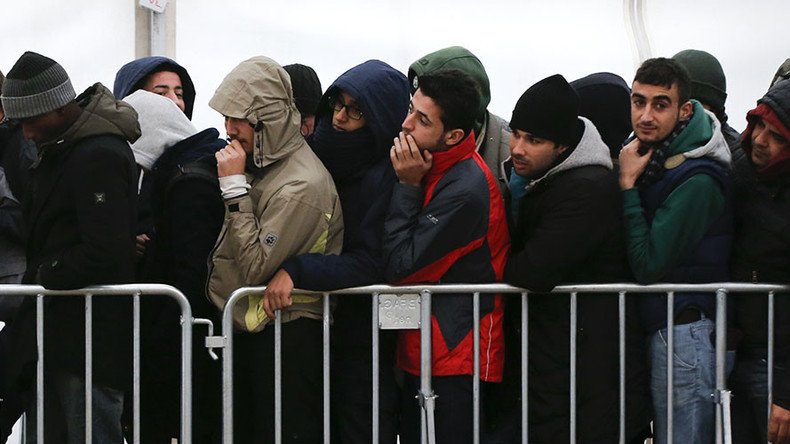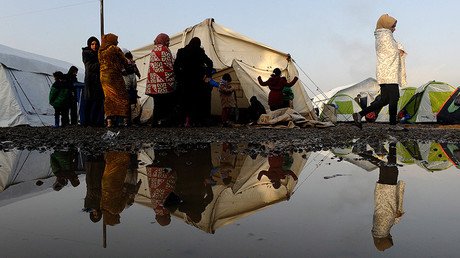Germany ‘threatens’ to scrap open-door policy ahead of EU-Turkey refugee crisis summit

Germany, the ultimate destination for most refugees, may soon start turning them away at its borders, if the number of entries does not drop. The Interior Minister had reportedly sent a strong message to the EU that the “time of waving the issue through is over.”
While chancellor Angela Merkel maintains she wants to keep Europe’s borders open, plans leaked to the Welt am Sonntag newspaper suggest that her own government is drawing up far more radical measures.
Sources close to Thomas de Maiziere, the Interior Minister in Merkel’s government, told Welt am Sonntag that he had ordered his staff to draft plans to seal the country’s borders. The alleged plans, according to the newspaper are meant to turn asylum seekers away at Germany’s borders.
The measure might be enforced in “next weeks” if the number of refugees crossing EU-Turkish borders does not reduce dramatically. “For de Maiziere, the time of waving the refugees through is over,” the sources said.
Such a radical measure is a direct threat to Brussels, the newspaper notes, stressing the decision to draft a roadmap for border closure could not be that of de Maziere’s office alone. The order must have come from chancellor’s office too.
According to Welt’s sources in the Bavarian police department, regional law enforcement units in Lower and Upper Bavaria were asked to make some “preliminary preparations” in case the federal police arrange “lasting border controls” and execute denial of entry for asylum seekers.
These unusually robust moves seem to be an attempt to put pressure on other European governments ahead of an EU-Turkey summit next Monday, tasked with working out breakthrough measures to deal with the crisis. For De Maiziere, the summit will be “a turning point,” according to Welt.
If EU leaders cannot agree a joint strategy to tackle the crisis at the meeting, “Germany has to enforce the reduction [of refugee numbers] on its side with its own measures, including without the EU’s sanction, if necessary,” the Bavarian interior minister was quoted as saying.
Earlier in February, chancellor Merkel said she will fight for a joint EU-Turkish plan as border closure remains the least desirable option for her. If the bloc stops finding solution and “instead closes the Greek-Macedonian-Bulgarian border,” she was quoted by Reuters, it should bear in mind “all the consequences that would have for Greece, the European Union and the Schengen zone.”
Merkel has repeatedly refused to set an upper limit for taking asylum seekers into Germany, despite it having already hosted some 1.1 million in 2015.
In the meantime, an overwhelming majority of Germans believe that their country cannot continue to take in every refugee claiming asylum seeker, a recent poll conducted by the NDR TV channel shows. Some 38 percent stand for an annual figure of 200,000 refugees, while only 11 percent of respondents reacted positively to an unlimited flow of asylum seekers.
Chancellor’s refugee strategy, otherwise known as the “open-door policy,” is slammed by considerable share of the population, and also her fellow politicians of CDU/CSU coalition.
Earlier on Monday, a former prime minister of Bavaria and chairman of CSU party told Die Welt the government’s policy on migrants directly contributes to the rise of the European far-right, such as French National Front, The Netherlands’ Party for Freedom and the Freedom Party of Austria.














